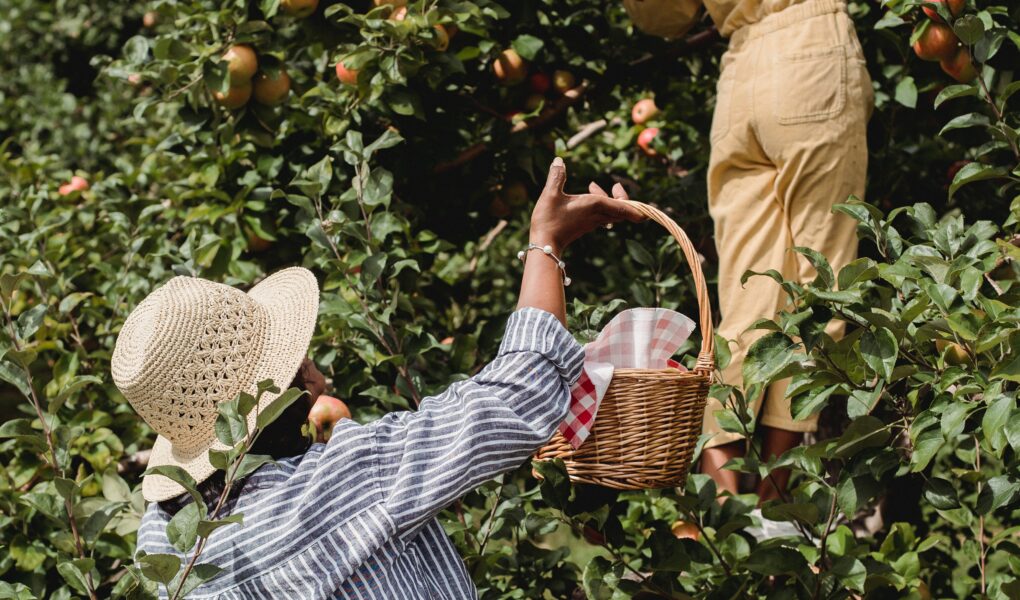Two women share their experiences
Author: Uschi Madeisky, Dagmar Margotsdotter
Dagmar Margotsdotter and Uschi Madeisky have visited not one matriarchy but several. They experienced their “other” social and family structures, which put the maternal and caring at the center. These experiences had a lasting impact on their lives and their view of our humanity. They were so kind and shared them in a lively and touching way with the editors in the following conversation.
Tattva Viveka: I warmly welcome Dagmar and Uschi. We are talking today about the diverse experiences you have had in matriarchal societies, how matriarchies differ from our patriarchal society, and what we can learn from them. In the following I would like to introduce you briefly: Dagmar has a degree in social education and is an author for Women’s Fates. You have taught at the Academy Alma Mater for a long time and founded the school MatriCon – International School for Matriarchal Consciousness. Uschi experienced her second socialization with matriarchal cultures, we will talk about that later. By profession you are a filmmaker. Since the 1990s you have been producing documentaries that deal with matriarchal societies and their ways of life. You have received numerous awards for these films.
How did you come into contact with matriarchal cultures and their way of life, which is different for us, even though you are both from Germany?
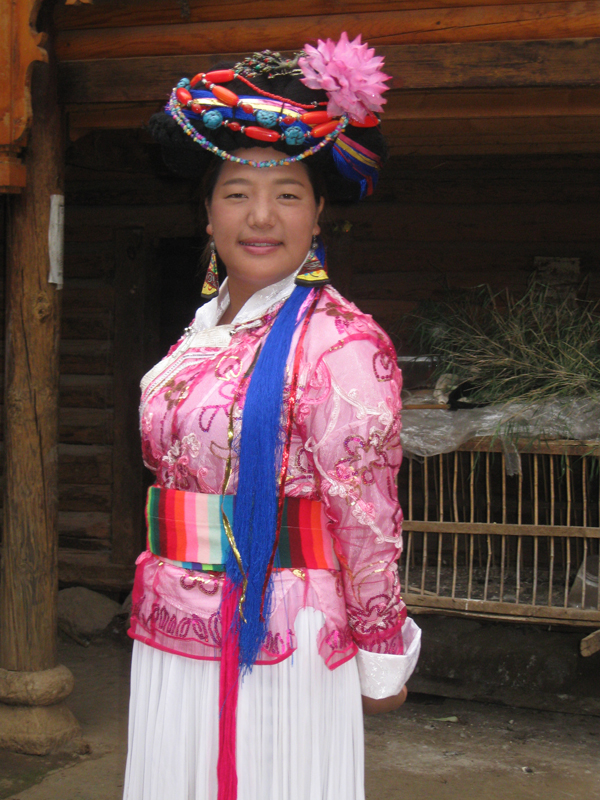 Encounter with living matriarchal societies
Encounter with living matriarchal societies
Uschi: I have never been really happy with how our life is possible here in our society, because it is very cold, dominant, set in fixed ways. Even as a child, I wasn’t happy with what was left for us in society. When I started making films, I chose topics like holistic thinking in medicine or how we can live together with children in a different way than is usual in our society. I tried to incorporate as many ideas as possible into my themes.
It wasn’t until the 1990s – I found that by then I had already done a lot of good and provided many suggestions for our world, which I thought was limited with many unhappy people around us – that I encountered societies living matriarchally. I found this out by chance on a trip to a vanished matriarchy, which I accompanied with my camera. That’s when I learned that this is how these people live in the world today. That made me a little unhappy, because I was in my early 40s and wondered why I hadn’t encountered this before. Since I knew the film craft very well, I decided to travel there. First I got to know the Khasi people in northeast India. That was my first matriarchy.
That’s why I can say that I was re-socialized once again.
It felt like I was taken there as a child. I was able to experience and witness everything with the people there, especially how differently they live, more humanly. Generally speaking, people there treat each other more humanely. That was my path. I was well prepared insofar as I knew that the way life is lived in our latitudes cannot be good for humanity.
MATRIARCHY AND THE HOLY COUPLE
TV: I would like to talk about the “Holy Couple”.
Uschi: There are women and men in the world, and they create the balance as sisters and brothers. We do not achieve this balance with the man who once visited us and to whom we women promised fidelity. The “holy couple” is not the loving couple, but the couple who came from the womb of the same mother. This is the symbolic order. It is a peaceful affair because they do not have to constantly try to court and hold that other being, because they are united based on biology. They share the same history and the same origin. The womb is a strong symbol in matriarchies. Some farms where the clan lives wear the name womb, so they use the same term.
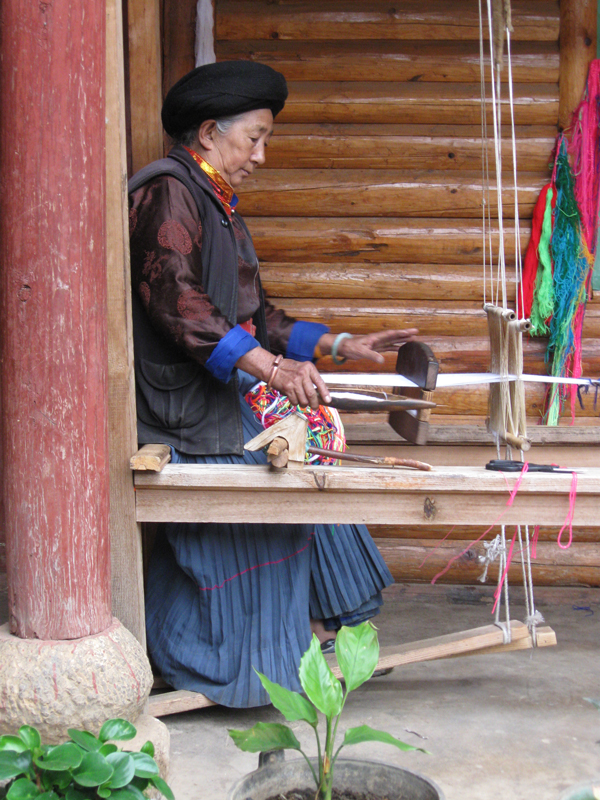 Meeting with living matriarchal societies
Meeting with living matriarchal societies
Dagmar: All belong to it who have ever shared the same womb, not at the same time, and it may have been the grandmother’s. Matrilineality is about the womb, about the womb. Sister and brother are the original couple. They stay together, even if conflicts arise, because they are birthing as one.
Uschi: They don’t need to compete with each other – whereas in Germany, unfortunately, this happens because we want to raise our children in justice. Everyone should get the same. No sooner has one not been considered than there is bickering among themselves. But if sister and brother see themselves as a stable couple, then not much can be shaken.
Dagmar: That is the basis of matriarchal societies. When marriage happens in matriarchal societies, it’s patriarchalization, so it’s no longer primal matriarchy. In the primordial matriarchy, people don’t marry, they visit.
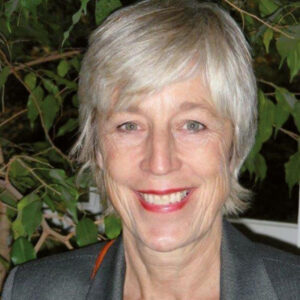 About the authors
About the authors
Uschi Madeisky, daughter of Gertrude, received her second socialization among matriarchal peoples. She is a filmmaker by profession and has been producing documentaries about matriarchal societies and ways of life since the 1990s. For this she received the Tony Sender Award of the city of Frankfurt am Main and the Elisabeth Selbert Award of the state of Hesse. She is co-founder of MatriaVal e. V. and member of the board. Was co-organizer of: “International MotherSummit 2008” in Karlsruhe, the “International Goddess Congress 2010” at Hambach Castle and the congress “Peaceful Societies Introduce Themselves 2017” in Jena City Hall. She learned and taught at the ALMA MATER Academy and co-directs MatriaCon, the international school for matriarchal consciousness founded in 2017 (www.matriacon.net / www.tomult.de).
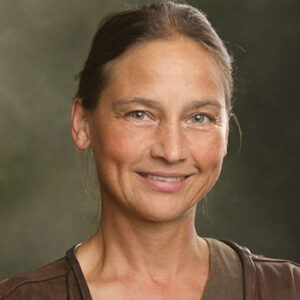
Dagmar Margotsdotter, graduate in social pedagogy. She is a mother to three children, author and cultural consultant for matriarchal studies. Also she travels as a researcher in different matriarchies. On her travels, she is involved, among other things, in the worldwide networking of these peaceful and balanced societies. She learned and taught at the ALMA MATER academy and co-directs MatriaCon, the international school for matriarchal consciousness founded in 2017. In 2006, together with Uschi Madeisky and other matriarchal researchers, she founded the association MatriaVal e. V. After she was co-organizer of the “International MotherSummit 2008” in Karlsruhe, the “International Goddess Congress 2010” at Hambach Castle and the congress “Peaceful Societies Introduce Themselves 2017” in Jena City Hall. Since 2000 she has been traveling to matriarchies around the world. Since 2012 she has been documenting their everyday life on film (www.matria.de).
This article appeared originally on the German Homepage of Tattva Viveka: Begegnung mit lebenden matriachalen Gesellschaften

